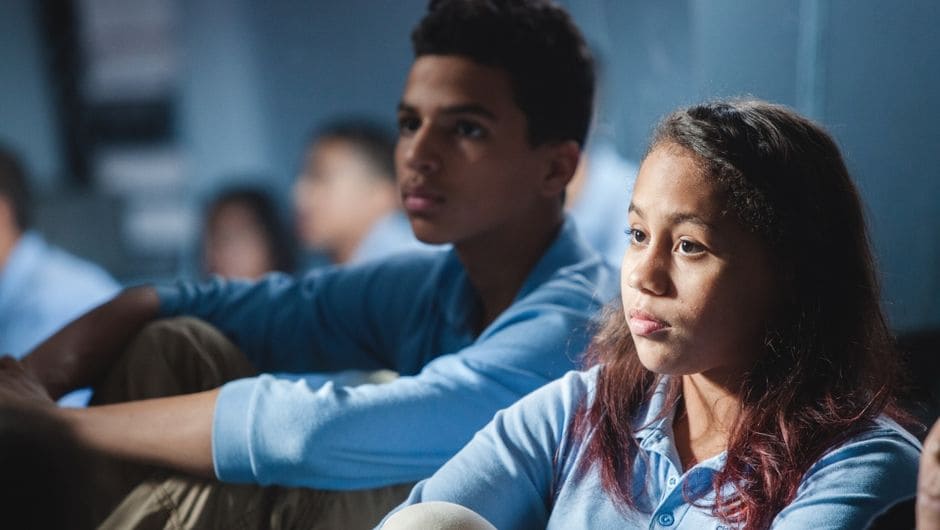Igniting Curiosity and Compassion
April 9, 2018
“A person does not reach the pinnacle of self-realization without relentlessly exploring the parameters of the self...it is our curiosity and refusal to be satisfied with the status quo that compels us to challenge ourselves to learn and continue to grow.” - Kilroy J. Oldster
“I have no special talents. I am only passionately curious.” - Albert Einstein
These quotes breathe hope in the young boy, born and raised in BedStuy, Brooklyn in a low-income, single-parent household, who questions if there’s more – more safety, more finances, more opportunity, more. These quotes breathe hope in the young me. Now, a Princeton graduate, a 2011 TFA-NY alumnus, and the Special Education Director at The Equity Project Charter School, I have only just begun to realize the “more” that I dreamed of as a young boy. This sense of more for my students is what drives me to stay in the classroom. When I am most successful in my classroom, my students’ sense of possibility has expanded as well as their self-assuredness and drive to attain that possibility.
In these quotes, lawyer Kilroy J. Oldster and Einstein address a powerful message about self-determination and curiosity. Too often, in the name of resolution, simplicity and certainty, we settle for over simplifications that ultimately yield misunderstanding. Kilroy challenges people to reject being satisfied with simple, with the status quo, with neat and pretty. People often tend to stray from complexity, from confusion, and the discomfort of gray areas. However, by committing to curiosity, we can acknowledge the possibility of complex realities other than the ones immediately available to us. Imagine the student who triggers you most. Perhaps the student calls out all the time, disrupts class, throws tables, and starts fights regularly throughout the week. The student who curses you out and whose intentions seem only to inflict pain. Curiosity allows us to wonder why. Curiosity allows us to suspend judgment while we creatively problem-solve about why a student would ask for love in such a contradictory manner. Committing to curiosity requires us to humble ourselves first – to admit that there is always an opportunity to learn and grow. Committing to curiosity is focusing our efforts to ask questions and to explore compassionately the unknown and the complex.

Part of Teach For America New York’s strategic priority is to rally our network of alumni to focus collectively on NYC’s most vulnerable students so that they can have access to a culturally responsive education. How powerful would it be if TFA-NY staff and alumni could collectively facilitate self-determined, curious, compassionate individuals within this group of vulnerable students? What would it mean for students to feel empowered to ask questions as well as to push back on perceived misconceptions? Facilitating this self-determination within our most vulnerable populations means modeling it for our students and in our lives. It means interpreting mistakes and failures as an essential part of our success journey towards self-determination. Facilitating self-determination requires us to ignite curiosity as well as compassion:
Curiosity – It’s difficult to hold both curiosity and judgment at the same time. Judgment draws conclusions and closes doors. It blames and seeks punishment; yet, curiosity opens them – like the beautiful door of risk. We show curiosity by asking questions when we’re confused, and even more so when we’re disappointed. By asking our children questions, we send the message that mistakes are an essential facet of the learning process. We also model for our children the ability to reflect and seek advice before making decisions. We instill trust – assurance that we trust our children and that they can trust us. Curiosity helps all those around us to grow by maintaining transparent vulnerability of the possibility of our own growth.
Compassion – Now, compassion is what gives our loved ones the blanket of security to be curious, to take risks, to dream big and to work relentlessly toward those dreams. It’s not enough for our children just to know that we love, appreciate and support them. We show compassion by complimenting and thanking our students at least 10 times each and every day. Compliment them for the smallest of steps toward success – however our individual situations might define it.
Our students, families and community have remarkable power, potential, and purpose. Let’s not teach our students that “curiosity killed the cat.” Let’s instead teach that “curiosity empowered the cat”. Let’s tap into that power by falling in love with inquiry, by committing to curiosity and compassion!


